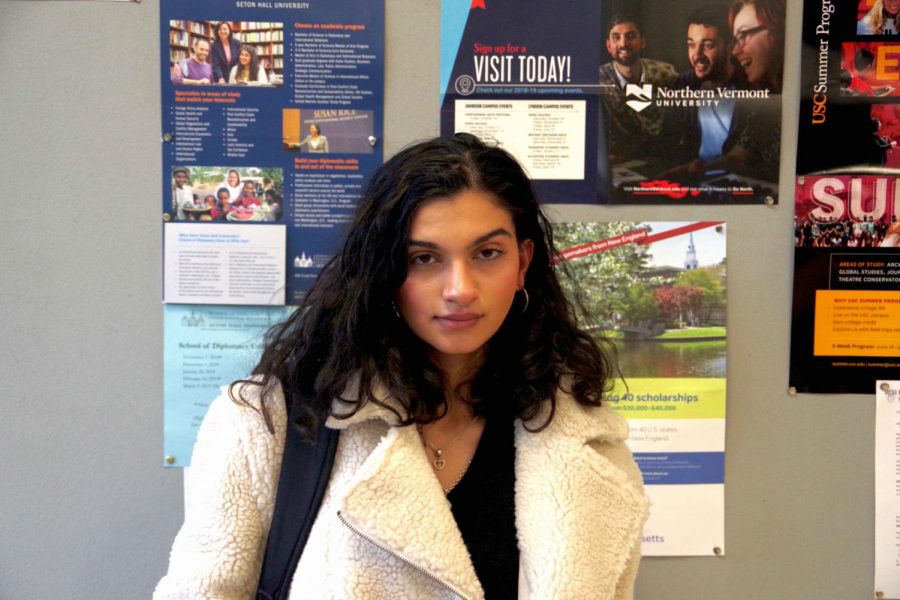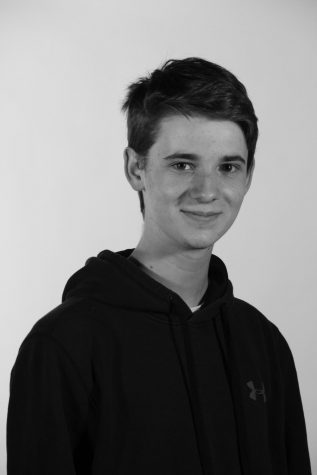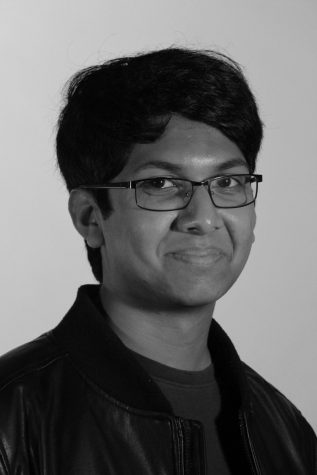Upcycling Club: Supporting Syrian Refugees with Clothes
Junior Mina Hasan is the founder of the prospective club making clothes for refugees.
November 30, 2018
CRLS junior Mina Hasan is on a mission to make a difference. She wants to do this by making a club for upcycling clothes and donating them to Syrian refugees. The only problem is that she hasn’t gotten her club approved yet.
Hasan describes upcycling clothes as “taking old clothes and making it something new. For example, taking a pair of jeans and sewing a design on them.”
Sarah Ikram, co-leader of this prospective club, adds that people in need “shouldn’t just be offered the bare minimum. Customizing these clothes adds something special for them.” Hasan says she reached out to the Harvard Refugee Center in early September to ask if they donated clothes to refugees. She hasn’t gotten a response from them yet. “If that doesn’t work out, I’m going to give the clothes to the Salvation Army, because it’s not just Syrians who need this stuff—it’s everyone who is facing conflict.”
She is very passionate about the Syrian conflict and she wants that to remain the focus of the club. The Syrian conflict “is one of the biggest humanitarian crises ever. It’s been going on for eight years.”
Hasan says that giving clothes to Syrian refugees is important. She says, “A lot of people in Syria are being displaced internally and externally. … Giving these clothes is like giving them hope and letting them know that there are people out there that know what’s going on and care about them.” When asked about the club’s target audience, Hasan said, “Generally, I want everyone to join, but I feel like people who are brown like [myself] and Muslims should be a part of this because … we should be giving back to our community and our people.”
Hasan also says she wants people who like fashion and are passionate about it to join. She wants people to “personalize” the clothes and create things “in their own way.” Hasan wants to avoid enlisting people who are participating in the club “just to put [it] on a college resumé.” She wants people to “actually care about helping others firsthand.”
Emma Weller, another co-leader of this club, wants to recruit people who “want to help people and the environment.” Weller added that “5.7% of all solid waste is textiles and clothing. … Reusing clothes is a really easy way to make that percentage smaller.”
Students who were asked about their thoughts on this statistic were shocked. One student responded, “That is an insane amount of clothing.” Another said, “That makes me want to donate more clothes.” Hasan, Ikram, and Weller feel confident that their club is fun, useful and important, but they find it “frustrating” that it hasn’t been approved yet. Hasan says she still hasn’t “gotten any feedback from Mr. Tynes or anyone so far. I’m just waiting.” Weller laments, “We missed the opportunity to bring people in on Club Day.” Ikram says, “I can confidently say [that the club would] be a way for people to express their creativity through redesigning donated clothes, as well as giving back to the people.”











